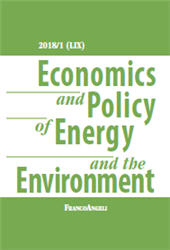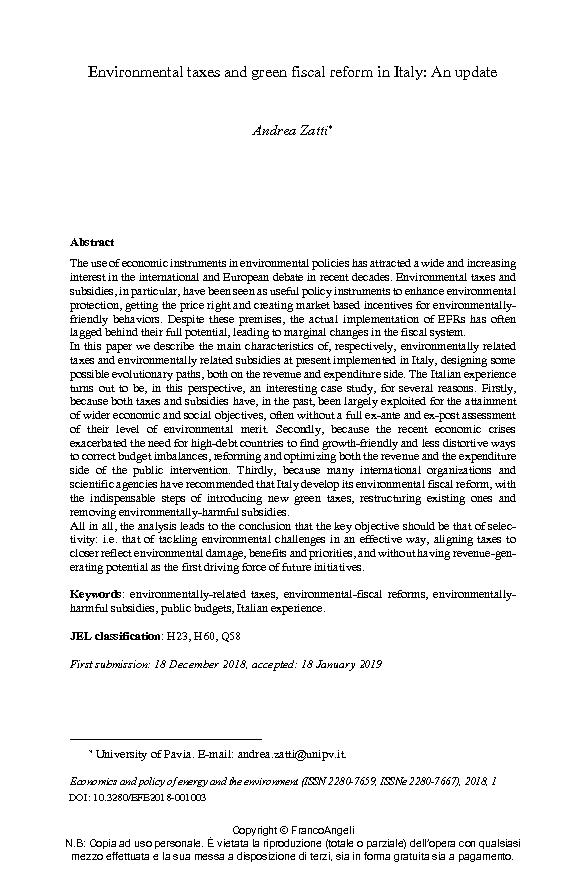Environmental taxes and green fiscal reform in Italy : an update
31-67 p.
The use of economic instruments in environmental policies has attracted a wide and increasing interest in the international and European debate in recent decades. Environmental taxes and subsidies, in particular, have been seen as useful policy instruments to enhance environmental protection, getting the price right and creating market based incentives for environmentally-friendly behaviors. Despite these premises, the actual implementation of EFRs has often lagged behind their full potential, leading to marginal changes in the fiscal system. In this paper we describe the main characteristics of, respectively, environmentally related taxes and environmentally related subsidies at present implemented in Italy, designing some possible evolutionary paths, both on the revenue and expenditure side. The Italian experience turns out to be, in this perspective, an interesting case study, for several reasons.
Firstly, because both taxes and subsidies have, in the past, been largely exploited for the attainment of wider economic and social objectives, often without a full ex-ante and ex-post assessment of their level of environmental merit. Secondly, because the recent economic crises exacerbated the need for high-debt countries to find growth-friendly and less distortive ways to correct budget imbalances, reforming and optimizing both the revenue and the expenditure side of the public intervention. Thirdly, because many international organizations and scientific agencies have recommended that Italy develop its environmental fiscal reform, with the indispensable steps of introducing new green taxes, restructuring existing ones and removing environmentally-harmful subsidies.
All in all, the analysis leads to the conclusion that the key objective should be that of selectivity: i.e. that of tackling environmental challenges in an effective way, aligning taxes to closer reflect environmental damage, benefits and priorities, and without having revenue-generating potential as the first driving force of future initiatives. [Publisher's Text]
-
Articoli dello stesso fascicolo (disponibili singolarmente)
-
Informazioni
Codice DOI: 10.3280/EFE2018-001003
ISSN: 2280-7667
PAROLE CHIAVE
- Environmentally-related taxes, environmental-fiscal reforms, environmentally-harmful subsidies, public budgets, Italian experience



